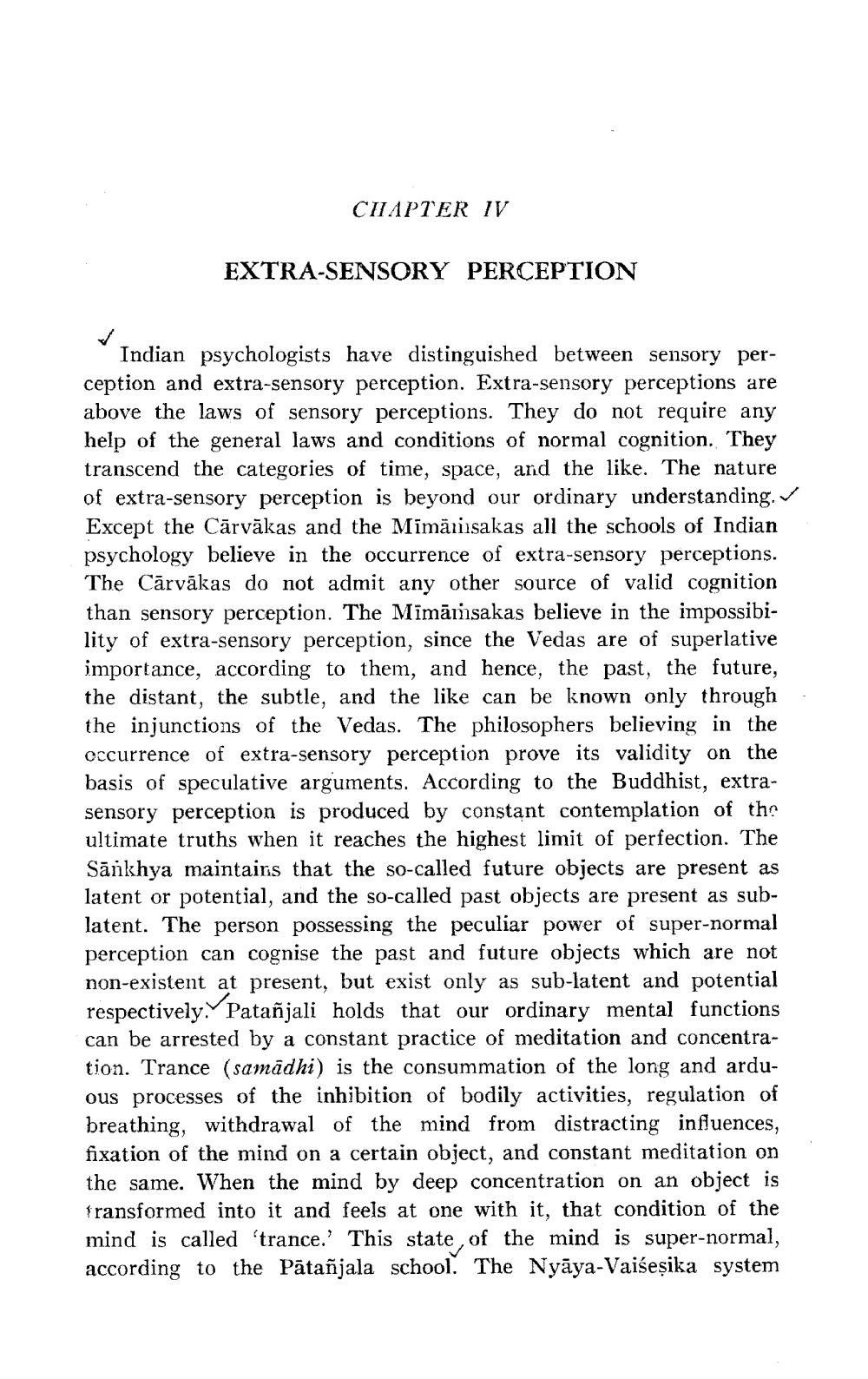________________
CHAPTER IV
EXTRA-SENSORY PERCEPTION
Indian psychologists have distinguished between sensory perception and extra-sensory perception. Extra-sensory perceptions are above the laws of sensory perceptions. They do not require any help of the general laws and conditions of normal cognition. They transcend the categories of time, space, and the like. The nature of extra-sensory perception is beyond our ordinary understanding. Except the Cārvākas and the Mimāriisakas all the schools of Indian psychology believe in the occurrence of extra-sensory perceptions. The Cārvākas do not admit any other source of valid cognition than sensory perception. The Mīmāmsakas believe in the impossibility of extra-sensory perception, since the Vedas are of superlative importance, according to them, and hence, the past, the future, the distant, the subtle, and the like can be known only through the injunctions of the Vedas. The philosophers believing in the occurrence of extra-sensory perception prove its validity on the basis of speculative arguments. According to the Buddhist, extrasensory perception is produced by constant contemplation of the ultimate truths when it reaches the highest limit of perfection. The Sānkhya maintains that the so-called future objects are present as latent or potential, and the so-called past objects are present as sublatent. The person possessing the peculiar power of super-normal perception can cognise the past and future objects which are not non-existent at present, but exist only as sub-latent and potential respectively. Patañjali holds that our ordinary mental functions can be arrested by a constant practice of meditation and concentration. Trance (samadhi) is the consummation of the long and arduous processes of the inhibition of bodily activities, regulation of breathing, withdrawal of the mind from distracting influences, fixation of the mind on a certain object, and constant meditation on the same. When the mind by deep concentration on an object is transformed into it and feels at one with it, that condition of the mind is called 'trance. This state , of the mind is super-normal, according to the Pātañjala school. The Nyāya-Vaišeșika system




